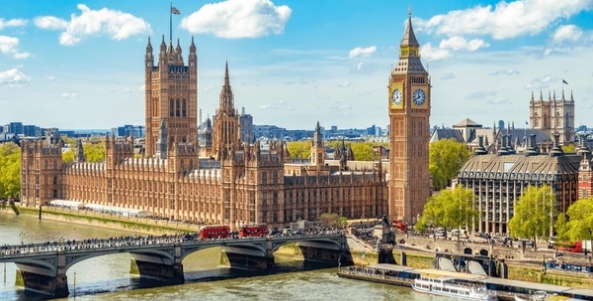Why People Choose Us
Professional Guidelines
Fast Processing
Quality of Work
History of Success Visitors
Dedicated Support
Transparency of Services
Multiple Services Solutions
Do Read About Us for Details.







For Your Convenience, We have drafted some basic Answers according to our Experiences. However, it is recommended that you solely rely on update(s) and current Authentic information provided by Embassy or Government of Host Country. Read Disclaimer and other section(s) for details.
A visitor visa is an official document that allows an individual to enter a foreign country temporarily for purposes such as tourism, visiting family, attending business meetings, or other non-immigration reasons. It is issued by the Embassy or Consulate of the host country.
Visa Decision Time is totally dependant on Embassy of Host Country.
Yes, You can apply with your Family. It is sole decision of Embassy to issue Visa(s) to Whole Family, Some Members or One.
No, overstaying a visa is illegal. It may result in penalties, such as fines, deportation, or a ban from entering the country again. Always adhere to the duration of stay allowed by your visa.
No, a visitor visa typically does not allow you to work or study. Engaging in these activities without proper authorization is a violation of visa rules and can lead to deportation or future visa denials. Apply for the appropriate visa category for work or study purposes.
You must demonstrate that you have sufficient funds to cover your travel, accommodation, and other expenses during your stay. The required amount varies depending on the destination country, length of stay, and number of applicants.
Although travel insurance is not mandatory in all cases, it is highly recommended. It provides coverage for medical emergencies, trip cancellations, and unforeseen events during your visit.
A criminal record does not automatically disqualify you from obtaining a visitor visa. However, you may be required to provide additional documentation, and the host country’s immigration laws will determine your eligibility.
No, consultants or agents cannot guarantee visa approval. They can assist with the application process, but the final decision is solely made by the Embassy or Consulate based on the provided documents and your eligibility. You are responsible to check, verify and submit your documents before submitting. We do not represent as representatives on behalf of applicant. We do not claim to be part of any government, decision making process, part of any official member or team or authorized representative.
Previous refusals do not necessarily mean future applications will be denied. However, you must address the reasons for the earlier refusals, provide accurate information, and ensure all requirements are met in your new application.
Yes, you can apply for a visitor visa even if you have no prior travel history. However, strong evidence of ties to your home country (such as employment, family, and property ownership) is crucial to demonstrate your intention to return.
A sponsor is not mandatory for a visitor visa in most cases, it depends on purpose of visit and nature of sponsorship. However, if someone is sponsoring your trip (e.g., family or a business entity), you may need to provide a sponsorship letter and proof of the sponsor’s financial capability. Sponsorship is not a guarantee of visa approval. It is important to prove return ties as well for stronger profile.
A study visa allows a foreign national to travel to another country to pursue education at a recognized institution. It is issued by the Embassy or Consulate of the host country and typically requires enrollment in an approved program.
The requirements for a study visa may vary by country, but the basic criteria generally include: An acceptance letter from a recognized educational institution. Proof of sufficient financial resources to cover tuition fees, living expenses, and travel costs. A valid passport with sufficient duration of expiry and recommended blank pages. Proof of language proficiency or equivalent as per requirement (e.g., IELTS, TOEFL). Medical examination or health insurance (if required). A completed visa application form and payment of visa fees.
Many countries allow international students to work part-time during their studies, subject to specific restrictions.
Some countries allow students to bring their spouse and dependent children on a dependent visa.
Proof of funds demonstrates that you have sufficient resources to cover tuition fees, living expenses, and other costs during your stay.
In most cases, language proficiency is mandatory to ensure you can participate in your course of study. However, some exceptions include: Being from an English-speaking country. Enrolling in a program taught in your native language. Receiving a waiver from the institution.
Although travel insurance is not mandatory in all cases, it is highly recommended. It provides coverage for medical emergencies, trip cancellations, and unforeseen events during your visit.
Study visa processing times vary by country, institution and application volume.
A post-study work visa allows international students to stay and work in the host country after completing their studies.
Yes, most countries require international students to have health insurance.
Yes, most study visas allow travel outside the host country, but you must: Hold a valid visa and passport. Ensure your visa permits re-entry. Inform your institution and immigration authorities if required.
For short-term courses (e.g., less than six months), some countries allow entry on a visitor visa. However, if you plan to stay longer or transition to a degree program, you must apply for a study visa.
Some countries provide pathways for international students to apply for permanent residency (PR).
Just Send Us an Email or Contact Us to Discuss. We'll be Glad to hear from You.
Al Safar Consultant
Email: info@alsafarconsultant.com
Helpline:+92-3346441155
Professional Guidelines
Fast Processing
Quality of Work
History of Success Visitors
Dedicated Support
Transparency of Services
Multiple Services Solutions
Do Read About Us for Details.






